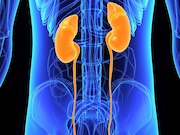Score for subscale of perceived seriousness for no reduction of salt intake higher in transplant patients
MONDAY, Sept. 25, 2017 (HealthDay News) — Health beliefs regarding salt intake are low among patients undergoing hemodialysis, according to a study published online Sept. 5 in the Journal of Renal Care.
Jianfei Xie, from Central South University in Changsha, China, and colleagues conducted a cross-sectional study involving a convenience sample of 307 outpatients who completed the health beliefs of sodium intake scale.
The researchers found that the score for the perceived self-efficacy subscale was highest and the score for the perceived barriers subscale was lowest in this cohort. These perceived benefits, as well as susceptibility for the reduction and no reduction of sodium subscales, were significantly higher for female versus male patients (P < 0.05). Compared with patients with middle school education or below, hemodialysis patients who had been educated above high school had significantly higher scores for the subscale of perceived barriers, as well as the seriousness for the reduction and no reduction of sodium intake (P < 0.05). Hemodialysis patients with higher versus lower income also had significantly higher scores for the subscale of perceived benefits, susceptibility, and self-efficacy for reduction or no reduction of sodium intake (P < 0.05 to 0.001). Patients who had versus those who had not received a transplant had a significantly higher score for the subscale of perceived seriousness for no reduction of sodium intake (P < 0.01).
“Patients undergoing haemodialysis have a low level of health belief about salt intake,” the authors write.
Copyright © 2017 HealthDay. All rights reserved.








